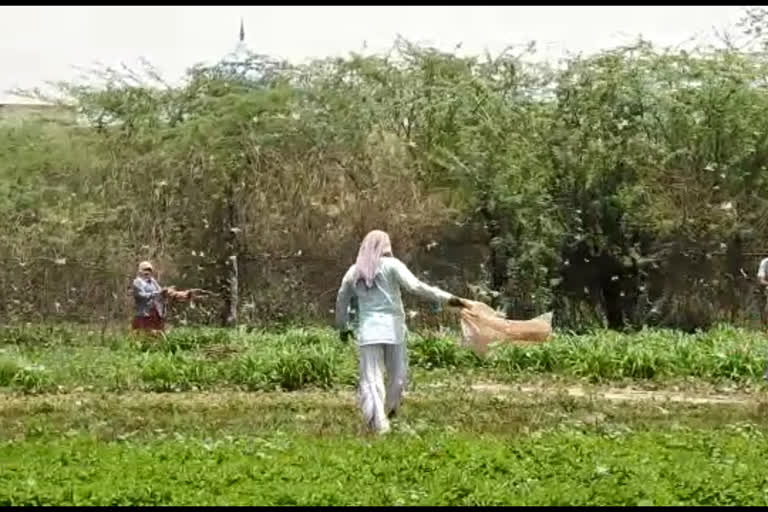New Delhi: A faceoff with thousands of Chinese soldiers in eastern Ladakh, an ongoing proxy war sponsored from across the Line of Control in Pakistan (LoC) to add to security troubles in Kashmir Valley, and with all resources focused on tackling a raging coronavirus pandemic, India will have to soon open another wide front against invading locust swarms that may threaten the country’s food security.
While the locust warning has already been issued for 16 states in the country, about one lakh hectares of farm land have already been stripped bare by the locusts. The average size of these invading swarms is about 5 sq km.
But among the problems confronting the government to destroy the pests is the small window of time available before the monsoon rains spread across the country.
Leading expert on agriculture and food policy, Devinder Sharma, told ETV Bharat: “In my decades of being involved in agriculture, I have never seen or heard about locust swarms that reach up to Karnataka and Odisha and threaten to spread over the Delhi sky. This one does.”
“The next one week or two will be very crucial. Because if the locusts survive till June-July when the monsoon rains spread across to the entire country, and then there will be much bigger problems in trying to control it.”
The first locust warning for India came in November while one attack in December-January was controlled.
So while there was enough time to prepare, the nationwide lockdown due to the pandemic resulted in unavailability of pesticides that are used to destroy locusts.
The other impending danger is the random spraying of pesticides and chemicals that are highly poisonous.
Many pesticides currently being used are ‘red-labelled’ or ones meant for use in desert like conditions.
Says Sharma: “We should refrain from using such harmful pesticides especially in areas which are not deserts where human habitation is sparse. But in areas of human habitation, use of the more harmful pesticides will definitely have an environmental or health impact. We have to be very careful.”
Also Read: Locust operations conducted in 15 locations in Rajasthan, Madhya Pradesh


